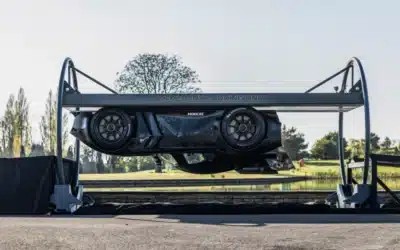
The future of cars in the UAE is, without doubt, electric. The Government has set ambitious targets for 50% of all cars sold to be EVs by 2050. Drivers are also responding very well, with a recent survey indicating that 63% believe an EV will be their main way of travelling within 18 months.
However, for the time being at least, electric cars are typically more expensive to buy than their internal combustion engine counterparts. Even though this won’t be the case within the next few years, and despite lower running costs, this initial upfront payment can put people off.
So what incentives are there to go electric?
In many countries, there are very significant incentives in place to encourage the transition to EVs. The most generous worldwide include Germany, Norway, France, Spain, Italy and the UK.
These Government incentives come in a mixed package of discounts, tax breaks and “added value” benefits such as free parking.
In the UAE, which of course doesn’t have income tax, individual tax breaks aren’t an option and there are no additional direct financial incentives. EVs are subject to the standard 5%VAT rate and customs fees, which vary according to the car’s value.
Tina Hsieh, Tax Partner at Baker McKenzie in Dubai, comments: “ There is no exemption, no concession whatsoever for VAT when you acquire an EV or EV parts, so everyone is obligated to pay 5%. [In some countries] you may typically see some concessions or some better deductions, for example, for corporate tax if you use EVs. That has not been discussed yet at this point of time. So you don’t necessarily get a concession because the fleet of cars you decide to purchase are EVs as opposed to conventional cars.”
Some neighboring countries such as Qatar have more incentives. For example, the Government there has put in place purchase subsidies ranging from 70,000 Qatari Riyals (QAR) to 150,000 QAR depending on the type and model of the electric vehicle. EVs are also exempt from customs duties and registration fees, making them significantly cheaper compared to petrol-powered cars. And some public charging stations offer free electricity for EV owners, further reducing running costs.
Tina Hsieh sees Qatar’s moves as being a possible precursor to UAE government action in future. “I suppose if you are looking at it another way, what’s really interesting in the region is that because there’s nothing [no incentives], it’s a canvas,” she says. “So it’s certainly a good invitation for the government to start thinking about this. They made commitments at COP28 and they are generally quite open to innovation. There’s no doubt that the government is fully committed and interested.”
EV financing deals
If you’re looking for financing options to buy an EV, you can get more attractive deals than you can generally get for conventional cars. It’s worth shopping around for “Green Auto Loan”.
For example, Abu Dhabi Commercial Bank offers loans with a discounted interest rate of 1.94%, a 50% reduction in the processing fee and money off financing of chargers and other accessories.
Rakbank offers an interest rate of 2.79% plus a discount on insurance and flexible repayment plans.
Dubai Islamic Bank offers its specific “EVolve” product, with rates from as low as 1.89%.
Emirates NBD offers green auto loans up to AED 80,000. The first payment is also deferred 90 days, which helps with cashflow.
And don’t forget the financing options from the car brands themselves, which can also be beneficial. Al-Futtaim Automotive, for example, handles many leading brands and has finance options available.
With the ambition to accelerate take-up of EVs, it’s likely that more incentives will come in over the next few years, reducing barriers to switching even further.











